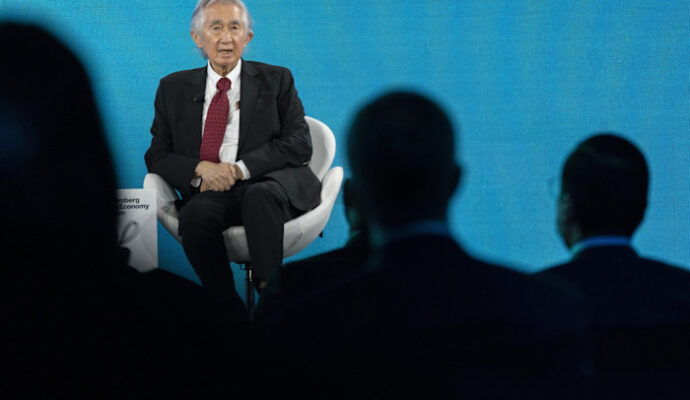
Unlock the Editor’s Digest for free
Roula Khalaf, Editor of the FT, selects her favourite stories in this weekly newsletter.
Passing through Bengaluru airport, I paused to check on my flight to Mumbai. On the departures board, the information was presented both in English and the elegant curls of Kannada, the main Indian language of the surrounding southern state of Karnataka. Conspicuously absent on the digital signage was Hindi.
A social media post pointing out this omission has gone viral in India, striking a raw national nerve. In a country with 22 official languages, Hindi is the most widely spoken. Most of those speakers are based in the north — Prime Minister Narendra Modi’s power base.
In much of the more prosperous and opposition controlled south, however, Hindi is resisted, even resented. There are long-standing anxieties over what many see as creeping attempts by Modi’s Bharatiya Janata party (BJP) to impose Hindi and diminish the region’s primary languages, which belong to a separate Dravidian family.
The fight is not limited to social media. In Bengaluru, pro-Kannada activists have vandalised stores that lack Kannada signs. Last month, an employee at a State Bank of India branch in the city was transferred after a video circulated of her refusing to speak the language with a customer. The clip prompted a rebuke from the state’s chief minister, Siddaramaiah. “Respecting local language is respecting the people. #KannadaFirst” he wrote on X.
Siddaramaiah, who goes by one name, has been one of the most vocal defenders of linguistic identity in southern India. His government mandated 60 per cent of Karnataka’s signage be in Kannada, and last year proposed reserving half of all private sector jobs for locals who count it as their mother tongue. That measure met resistance from Bengaluru’s tech sector, a magnet for workers from across India, and was shelved.
“There is already a huge amount of tension and that’s got to do with the distribution of political power,” said Ayesha Kidwai, professor of linguistics at Jawaharlal Nehru University. She added that administratively “there is a real problem that both the colonial and the post colonial state had when you have such linguistic diversity: how are you going to promise services to people?”
With many languages spoken across its subcontinental sprawl, India’s central government after independence in 1947 initially sought to promote Hindi, something that was virulently opposed in the south.
This year, a new war over words has erupted as New Delhi pushes the southern state of Tamil Nadu to implement the national “three-language policy”, under which students learn English and two Indian languages at state-run schools. Tamil Nadu has long refused to implement it, arguing such moves would impose Hindi by stealth. The state has also accused the government of withholding education funds as pressure.
In April, Modi mocked Tamil Nadu’s politicians for writing to him in English. The state’s chief minister, MK Stalin, snapped back, warning Modi’s government “not to throw stones at a beehive”.
Such clashes are entwined in deeper political fears. Modi’s administration has signalled plans to redraw parliamentary boundaries after the 2027 census, a move that would further shift the balance of power to his party’s northern heartland.
That prospect has caused alarm in the south, which boasts higher human development levels, houses a large chunk of India’s industrial capacity and feels increasingly sidelined. Tamil Nadu’s Stalin recently told the FT the BJP treats people in the south as “second-class citizens”.
Whatever the shape of India’s political landscape, language anxieties are likely to continue playing out across its increasingly multilingual cities. S Irudaya Rajan, chair of the International Institute of Migration and Development in Kerala, estimates that close to half of all urban residents in India now speak a different first language to that of locals.
But Rajan himself has muddled along without too much trouble. “I studied four years in Mumbai, still I can’t speak Hindi. I [have lived] in Kerala for 25 years, I can’t speak good Malayalam,” he said, referring to the state’s main language. “Language doesn’t matter . . . everybody is playing politics.”


